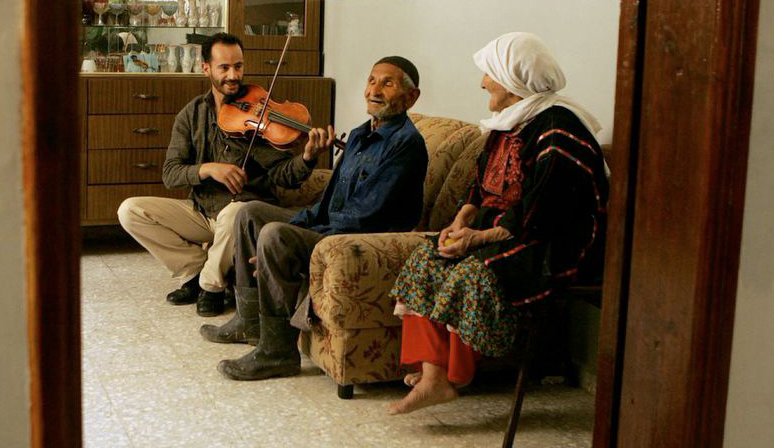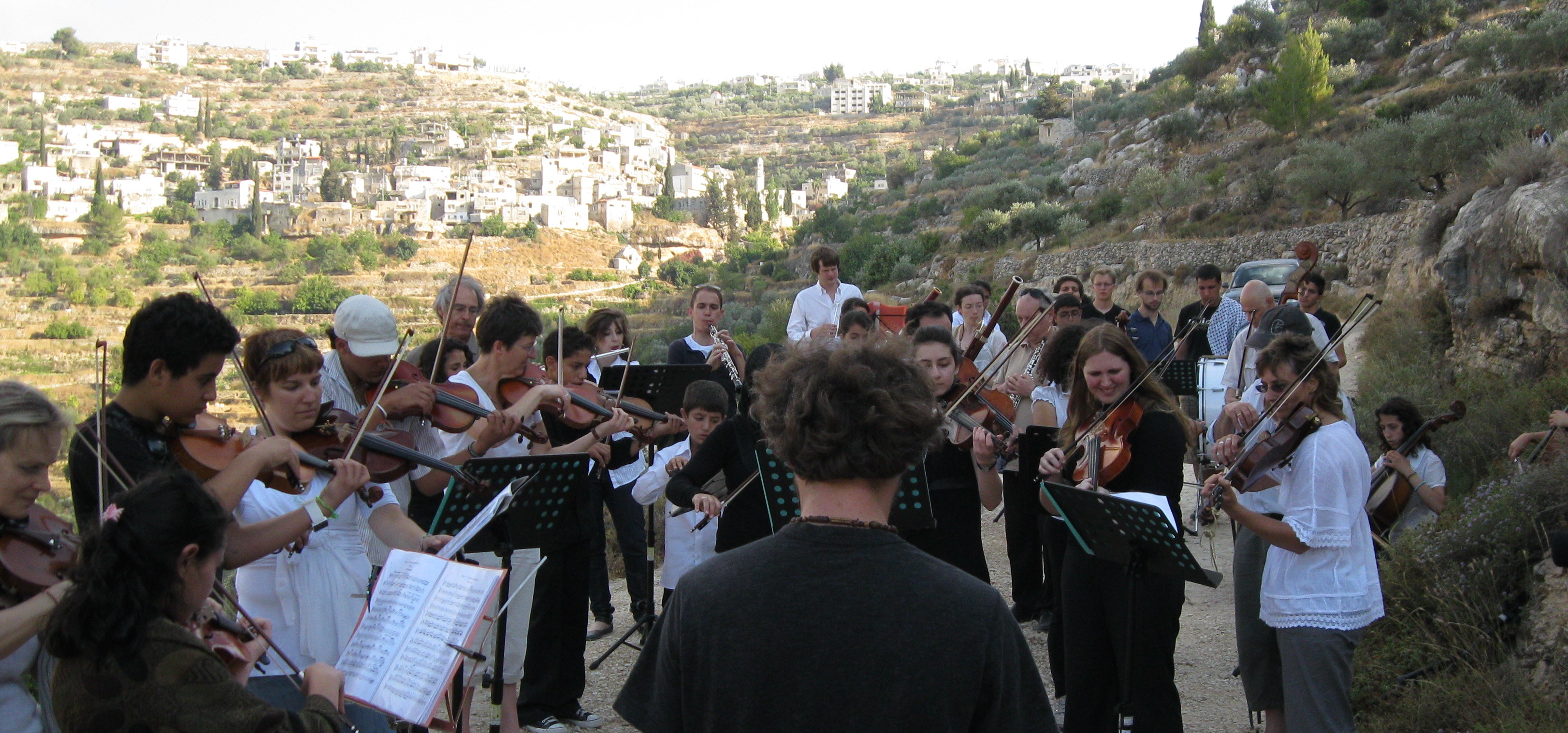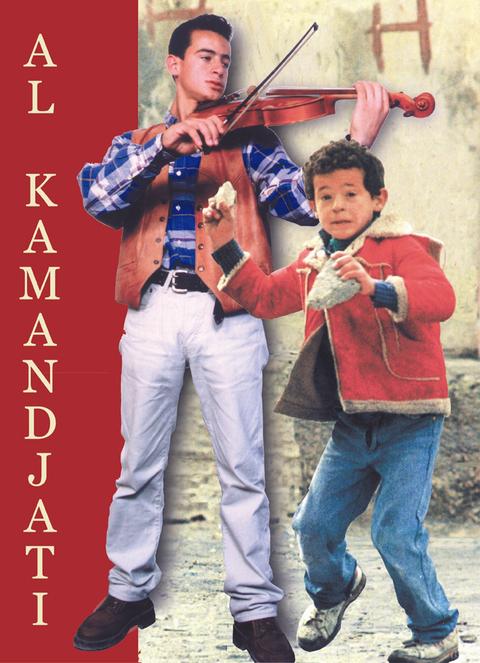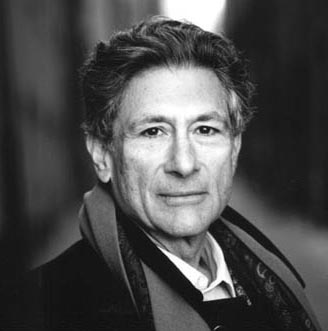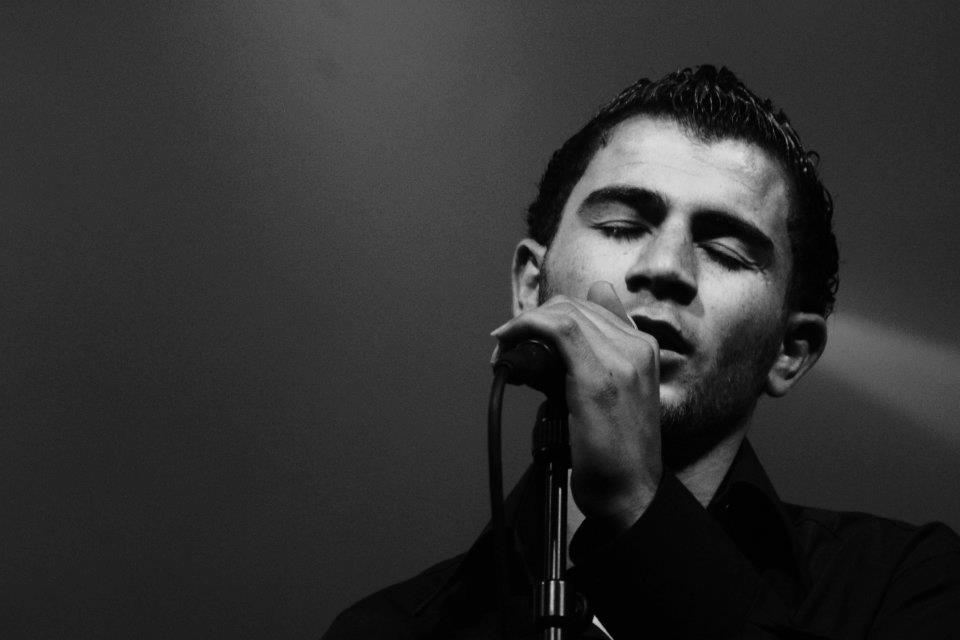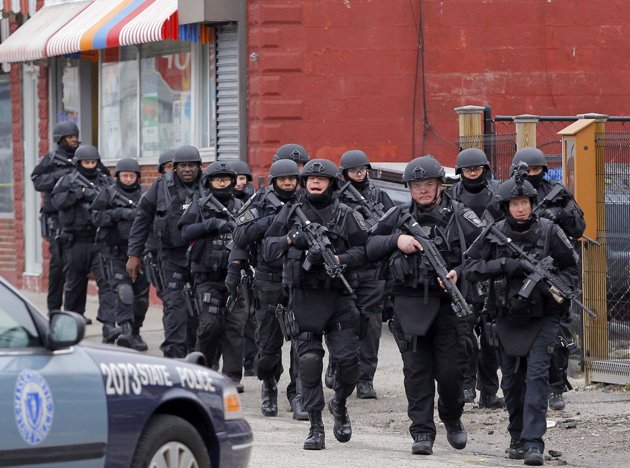Read all of the excerpts from the first week of Grace Notes. (more…)
Grace Notes: Children of the Stone hits store shelves today
To promote the release of Sandy Tolan’s latest book, Children of the Stone, Ramallah Café presents Grace Notes, short excerpts curated by the author himself. The book, about one Palestinian’s dream to build a music school in the middle of a military occupation, is out today. Children of the Stone is already receiving wide praise from historians, early reviewers, and the famed musician Yo-Yo Ma. (more…)
Grace Notes: Read the first excerpt from Children of the Stone
Beginning today, Ramallah Café presents Grace Notes, short excerpts from Sandy Tolan’s forthcoming book, Children of the Stone. The book, about one Palestinian’s dream to build a music school in the middle of a military occupation, comes out this month. Children of the Stone is already receiving wide praise from historians, early reviewers, and the famed musician Yo-Yo Ma. (more…)
Israeli elections hit new low: Foreign Minister threatens to behead disloyal Palestinians
Praise from Yo-Yo Ma, advanced reviews, and other early buzz for Children of the Stone
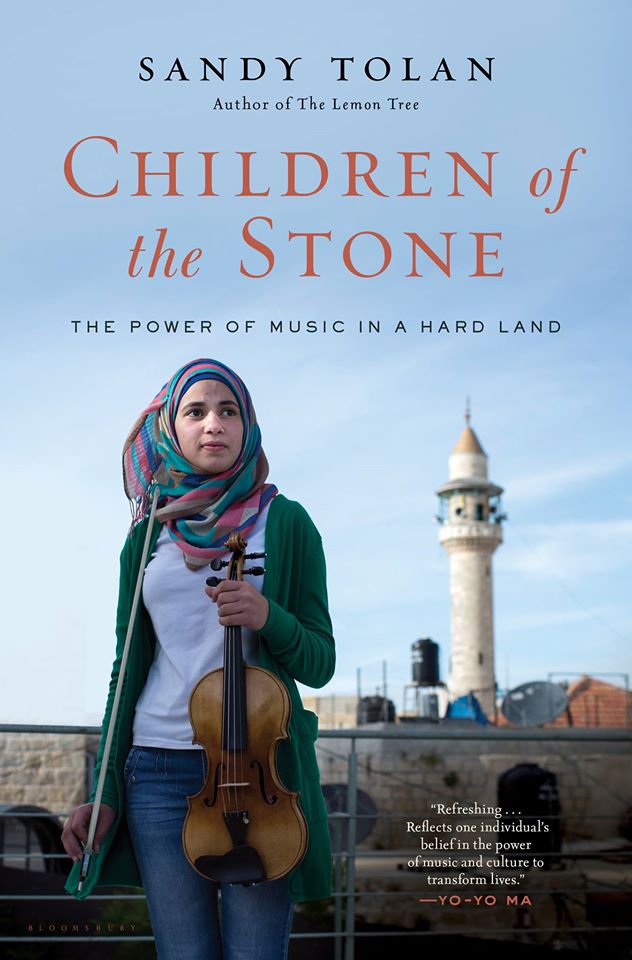 My new book, Children of the Stone: The Power of Music in a Hard Land, will launch in April, officially on April 21 with a talk at the downtown LA Public Library’s ALOUD series, hosted by NPR’s Kelly McEvers. A two-week national tour follows. We’ve received wonderful initial feedback so far, including “blurbs” from Yo-Yo Ma and Reza Aslan, and glowing reviews from Booklist and others. We’ve set up a page to keep track of tour details as well as other news about the book itself and the conversations it hopefully inspires. We do want to help change the conversation in this country about Palestine/Israel. I would love you to take a look, like the Facebook author page, and stay in touch. https://www.facebook.com/SandyTolanAuthor
My new book, Children of the Stone: The Power of Music in a Hard Land, will launch in April, officially on April 21 with a talk at the downtown LA Public Library’s ALOUD series, hosted by NPR’s Kelly McEvers. A two-week national tour follows. We’ve received wonderful initial feedback so far, including “blurbs” from Yo-Yo Ma and Reza Aslan, and glowing reviews from Booklist and others. We’ve set up a page to keep track of tour details as well as other news about the book itself and the conversations it hopefully inspires. We do want to help change the conversation in this country about Palestine/Israel. I would love you to take a look, like the Facebook author page, and stay in touch. https://www.facebook.com/SandyTolanAuthor
A rare appeal: Help children under occupation learn music
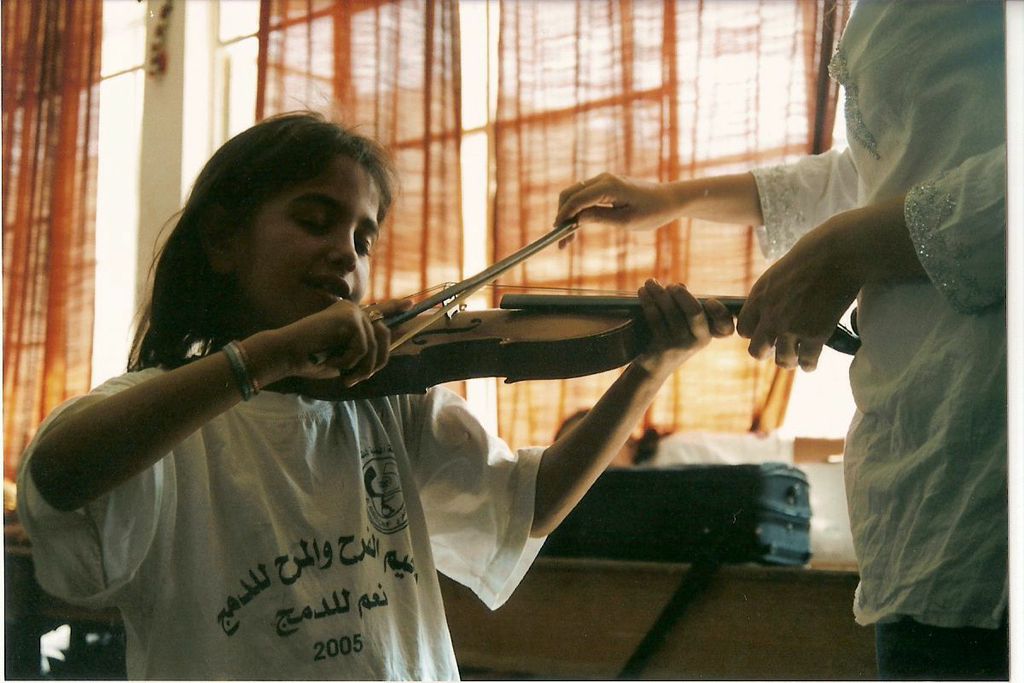
An Al Kamandjati student learns the violin, Al Amari Palestinian refugee camp. Photo by Margarida Mota.
For the last five years, I’ve been reporting and writing Children of the Stone: The Power of Music in a Hard Land (Bloomsbury, April 2015), which chronicles the journey of musician Ramzi Aburedwan, a child of the first Palestinian Intifada, and his dream to build a broad musical presence in occupied Palestine. Today Al Kamandjati (Arabic for The Violinist) has served thousands of Palestinian children through classes, workshops, annual music festivals, a instrument-building and repair center, and a summer music camp.
Blown chances for peace in Gaza
Alongside the toll of death and broken lives, perhaps the saddest reality of the latest Gaza war, like the Gaza wars before it, is how easy it would have been to avoid. For the last eight years, Israel and the U.S. had repeated opportunities to opt for a diplomatic solution in Gaza. Each time, they have chosen war, with devastating consequences for the families of Gaza. Read more, at TomDispatch.com…

Palestinian relatives at the funerals for the Bakr boys, four cousins aged 9, 10, and 11, killed in an Israeli shelling on a Gaza beach as they played hide and seek on July 15. Photo by Mahmud Hams, AFP/ Getty
Children of the Stones book excerpt, from Granta
An excerpt, published in Granta, from Children of the Stones (working title), my forthcoming book (Bloomsbury, 2014) about making music under occupation in Palestine. Much of the book focuses on Ramzi Aburedwan, a child of the first Palestinian intifada, whose Al Kamandjati music center serves hundreds of Palestinian children in the West Bank and refugee camps in Lebanon. From the Granta piece:
Fadi’s Italian arias represented another form of freedom. Anyone who heard him sing for the first time was astonished by the power and tone of the boy’s clear soprano. His pitch, and his resonance, seemed to reach inside listeners. In the practice room with Julia, Fadi’s voice would soar above the piano, cutting through the ambient din of Jenin: clear and resonant. In recitals, he had a natural dramatic presence, his eyes widening at emotional turns in the piece, as if he understood the original Italian. He memorized his first song, ‘Sebben, Crudele’ written by the Italian baroque composer Antonio Caldara for his 1710 opera, La costanza in amor vince l’inganno (Faithfulness in love conquers treachery), in a single lesson. The next evening he performed it at a recital for other students, accompanied by Jason on the piano. Julia was stunned. Teachers found themselves on the verge of tears. ‘A star! A new star at the Kamandjâti!’ Fadi declared that evening, giddy with his own gifts and laughing in celebration. Read more, in Granta…
Ten years after his death: remembering Edward Said and his quest for a just peace
Edward Said died ten years ago – September 25, 2003, after a twelve-year battle with leukemia. One of the 20th Century’s great intellectuals, Said, author of the masterworks Orientalism and Culture and Imperialism, was also a beloved professor to generations of students at Columbia University, a gifted amateur pianist and an opera critic for The Nation magazine. He was perhaps best known for his fierce defense of the rights of his people, the Palestinians, in numerous books and hundreds of essays and articles published worldwide.
September also marks another fateful anniversary – the 20th, of the now-infamous Arafat-Rabin handshake on the White House lawn, which sealed the Oslo accords. The legacies of Oslo and its greatest critic, Edward Said, stand as polar opposites. Indeed, it was Said who was among the first to sharply criticize the accords, in part because, unlike many satisfied pundits of the day, he had actually read them. For this reason, his widow Mariam told me, he had declined a White House invitation to attend the ceremony in September 1993. Today his words on Oslo are the soundings of a prophet.
Over the Wall, to Play Beethoven in Jerusalem
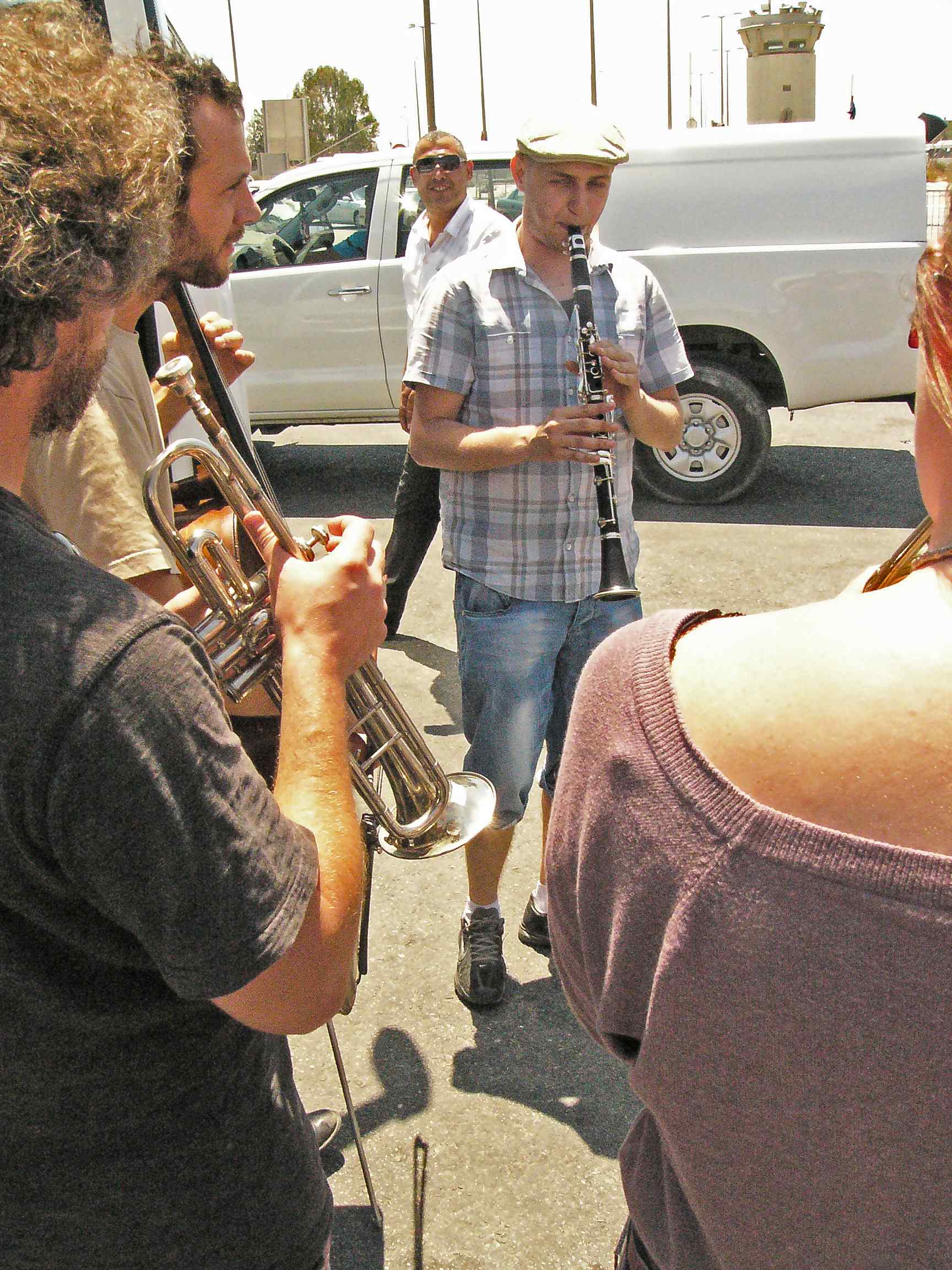
Jamming at Qalandia: Musicians bound for Jerusalem to play Beethoven's 4th Symphony played a waiting game, hoping the rest of the Palestinians in the orchestra would make it through the checkpoint. Photo by Eric Culver
Beethoven’s 4th Symphony has inspired countless thousands of musicians since it was first performed more than two centuries ago. Yet few, I’m sure, have risked arrest and prison time just to play this magnificent piece of music.
Enter the Ramallah Orchestra, made up largely of Palestinian musicians in their teens and twenties, accompanied by 15 or so visiting teachers and performers from Europe and the U.S. The orchestra is a project of Al Kamandjati, the Ramallah-based music school at the center of my next book. For the Palestinians in the orchestra, Beethoven’s music, inspiring at it is, makes up only part of the story.
A small tale of healing in Palestine
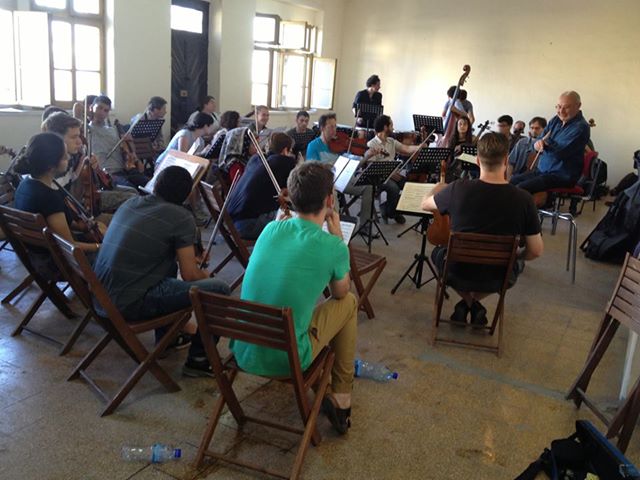
The profound amid the quotidian: Al Kamandjati's Ramallah Orchestra, rehearsing Beethoven and Mendelssohn in Old Ramallah, for a series of concerts beginning June 29 in Jerusalem
I arrived in Ramallah a week ago, limping heavily, and right into another story of Palestinian hospitality. I had torn a calf muscle doing exercise in my Jerusalem hotel room, and, after managing to get on the #18 minibus to Ramallah, then hop a cab to the flat I’m renting here for two weeks, I met my landlords – three generations of an old Ramallah family who live in the flats above and below the one they were renting me. This is my sixth trip to Palestine since 2009, all for reporting and research for my new book, about making music under occupation in Palestine. Every time I come, I encounter small, profound kindnesses: surprise in the quotidian life.
When he saw me limp up the stairs, Ziad, a young doctor, provided a quick assessment of my ailment; then with a look of concern, he asked me if I needed any groceries, since I wouldn’t be able to walk to get any. Well, yes, thanks, I said. Make a list, he said. Then he told me he knew an orthopedist at the end of the block; would I like him to try to get an appointment? Well, yes, thanks, I said again.
Oday Khatib, acclaimed Palestinian singer, set free; discusses his time in an Israeli prison
By Sandy Tolan and Anan Abu-Shanab
Oday Khatib, the acclaimed Palestinian singer from the Ramallah-based Al Kamandjati music school, walked out of an Israeli prison a free man this week. Oday was arrested on March 19 at Al Fawwar refugee camp near Hebron, and sentenced to three months in prison for allegedly throwing stones at Israeli soldiers.
ODAY KHATIB TO BE FREED: Israeli military court convicts the acclaimed Palestinian singer of throwing stones; release expected in June
Defense presents its case in stone-throwing trial of Oday Khatib; testimonies continue to pour in
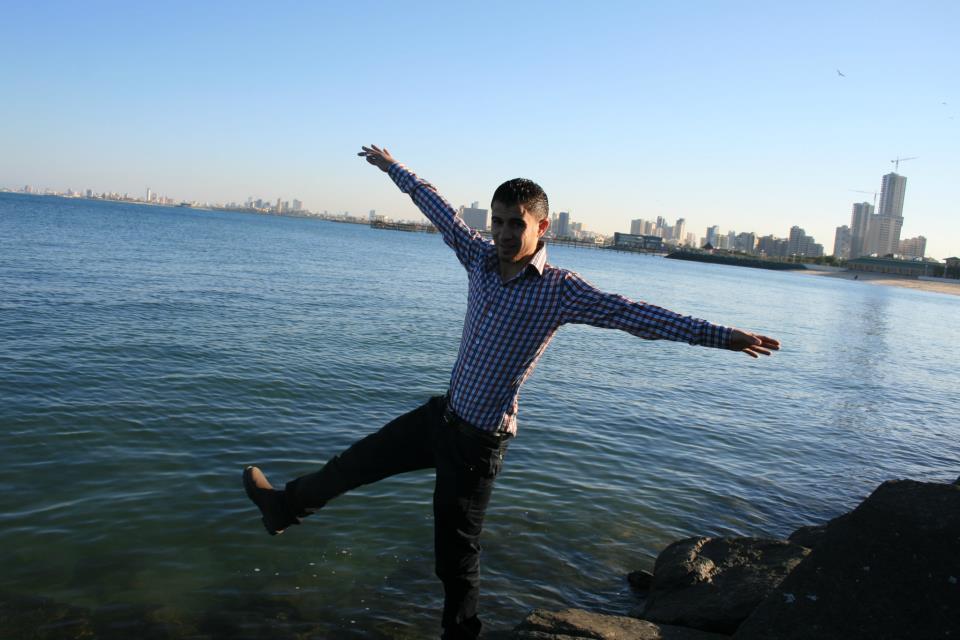
Beloved Palestinian singer Oday Khatib. His trial continues with defense testimony on Wednesday. A verdict could come within days.
As Oday Khatib’s defense in his stone-throwing trial begins, family members, friends, and fellow musicians from around the world continue to protest his innocence. The trial of the acclaimed Palestinian singer, which began last week, is taking place in Ofer military prison in the Israel-occupied West Bank. If convicted, Oday could receive ten years in prison under Israeli Military Order 1651. A verdict could come within days.
The lockdown in Boston: some questions UPDATED with additional questions on the scope of the lockdown
Nearly lost amidst the relief, celebration and flag-waving following the arrest of Dzhokhar Tsarnaev was the seemingly complete acquiescence to a martial law-like state in Boston. Yes, the lockdown was for but one day; yes, horrible things had just gone down. But shutting down an entire city to search for one man? Yes, he is suspected of having just committed heinous crimes. But as New Yorker writer John Cassidy asks, “does that justify locking down an entire city?” How outrageous would this have seemed on September 10, 2001? Among the initial under-examined questions, then, from the imposition of a quasi-military state in Boston:
Oday Khatib’s trial begins in West Bank military court; verdict could come by May 1, perhaps sooner See article to learn how to express concerns
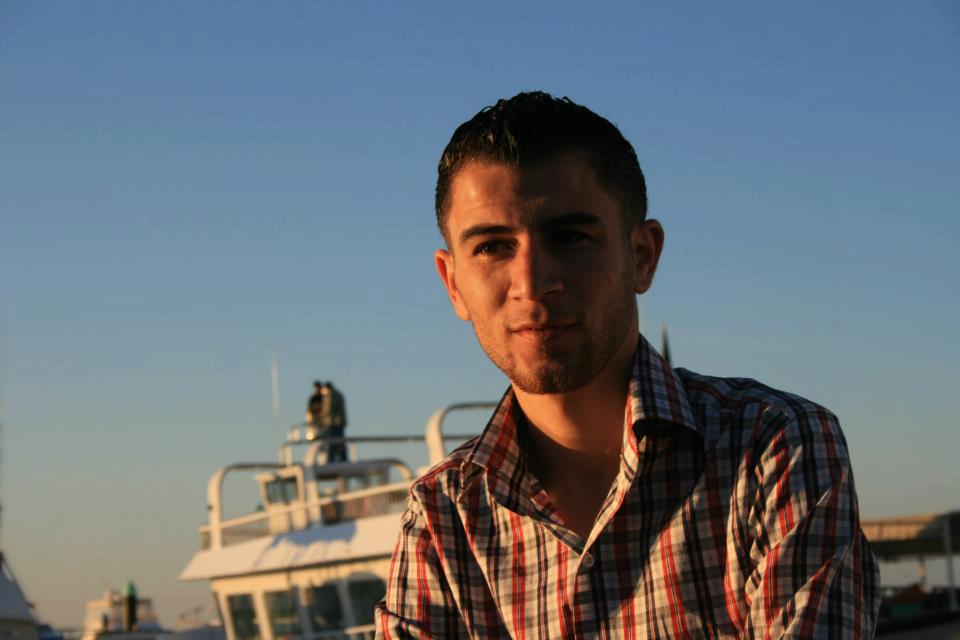
Oday Khatib, acclaimed Palestinian singer, in Kuwait, January 2013. Photo courtesy of Celine Dagher, Al Kamandjati
Acclaimed Palestinian singer Oday Khatib’s military trial has begun at Ofer Prison in the Israeli-occupied West Bank, according to Oday’s father and to Israeli military Captain Eytan Buchman. A verdict could come within days. If convicted on the charges of throwing stones at Israeli soldiers, Oday could be sentenced to ten years in prison.
Capt. Buchman wrote me by email: “Mr. Khatib’s trial began today with the prosecution’s case and testimony from three of the border guard policeman who had stones thrown at them. It will continue next week with the defense’s case and Mr. Khatib’s testimony.”
Oday Khatib, awaiting Israeli military trial, sings from his cell
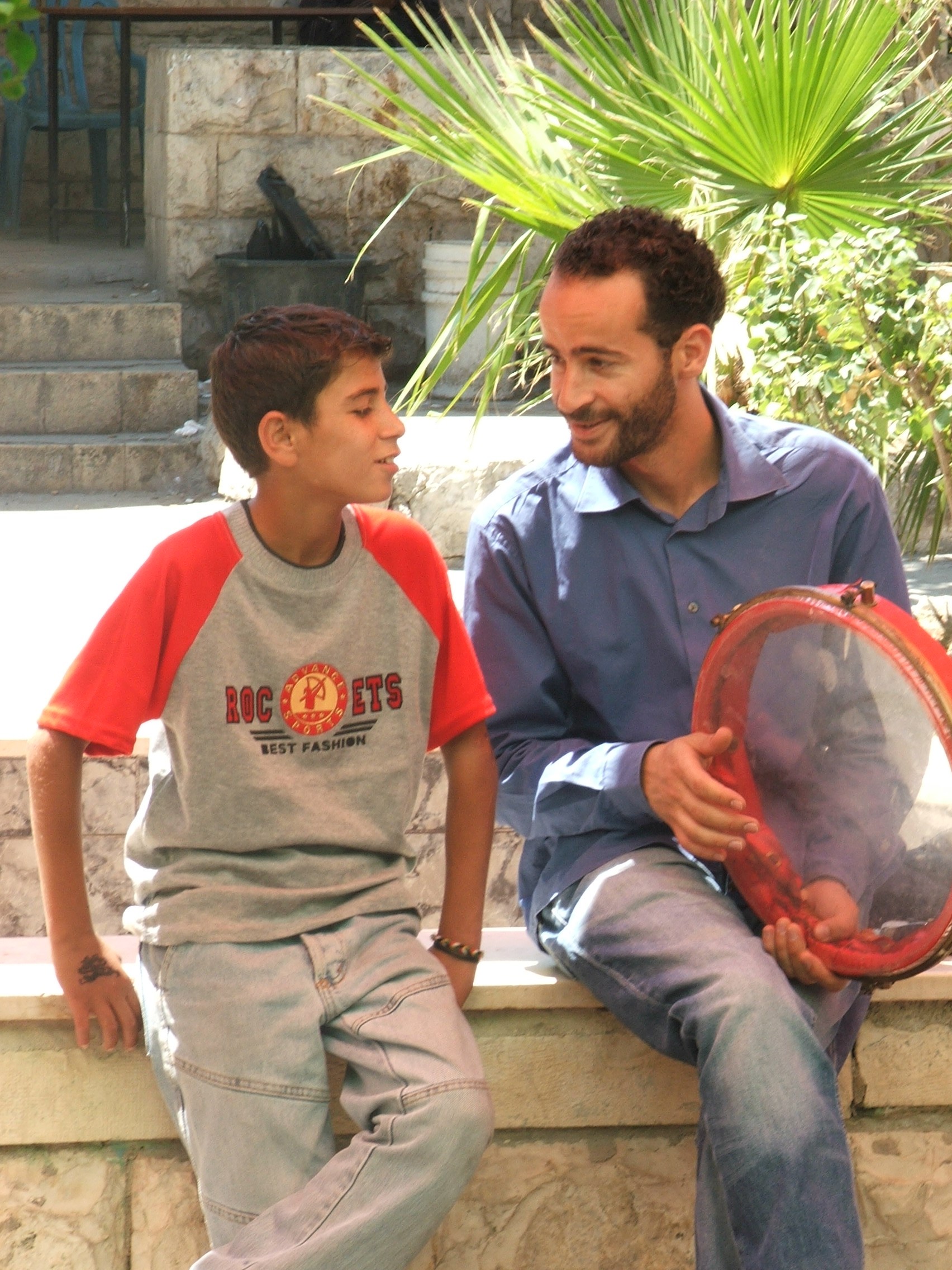
Oday Khatib at age 15, in 2005, with Ramzi Aburedwan, founder of Al Kamandjati music school. Photo by Celine Dagher.
By Sandy Tolan, Anan Abu-Shanab, and Eman Musleh — On Wednesday, April 10, Oday Khatib’s stone-throwing trial was postponed. Again. The Palestinian singer walked into Israeli military court and stood ready, for the third time, to face his accuser at Ofer prison near Ramallah. But the accuser, an Israeli soldier, didn’t show up. So says Oday’s father, Jihad Khatib, according to my colleague, Anan Abu-Shanab. Oday, 22, the rising star singer whose arrest and incarceration by the Israeli occupying authorities has set off waves of worry and musical witness in Europe and Palestine, stands accused of throwing stones at Israeli soldiers, who arrested him while chasing a group of kids on March 19. The penalty for such an offense, under Section 212 of Israeli Military Order 1651, is ten years in prison.
Israeli military trial of Oday Khatib, acclaimed Palestinian singer, postponed again, to April 17
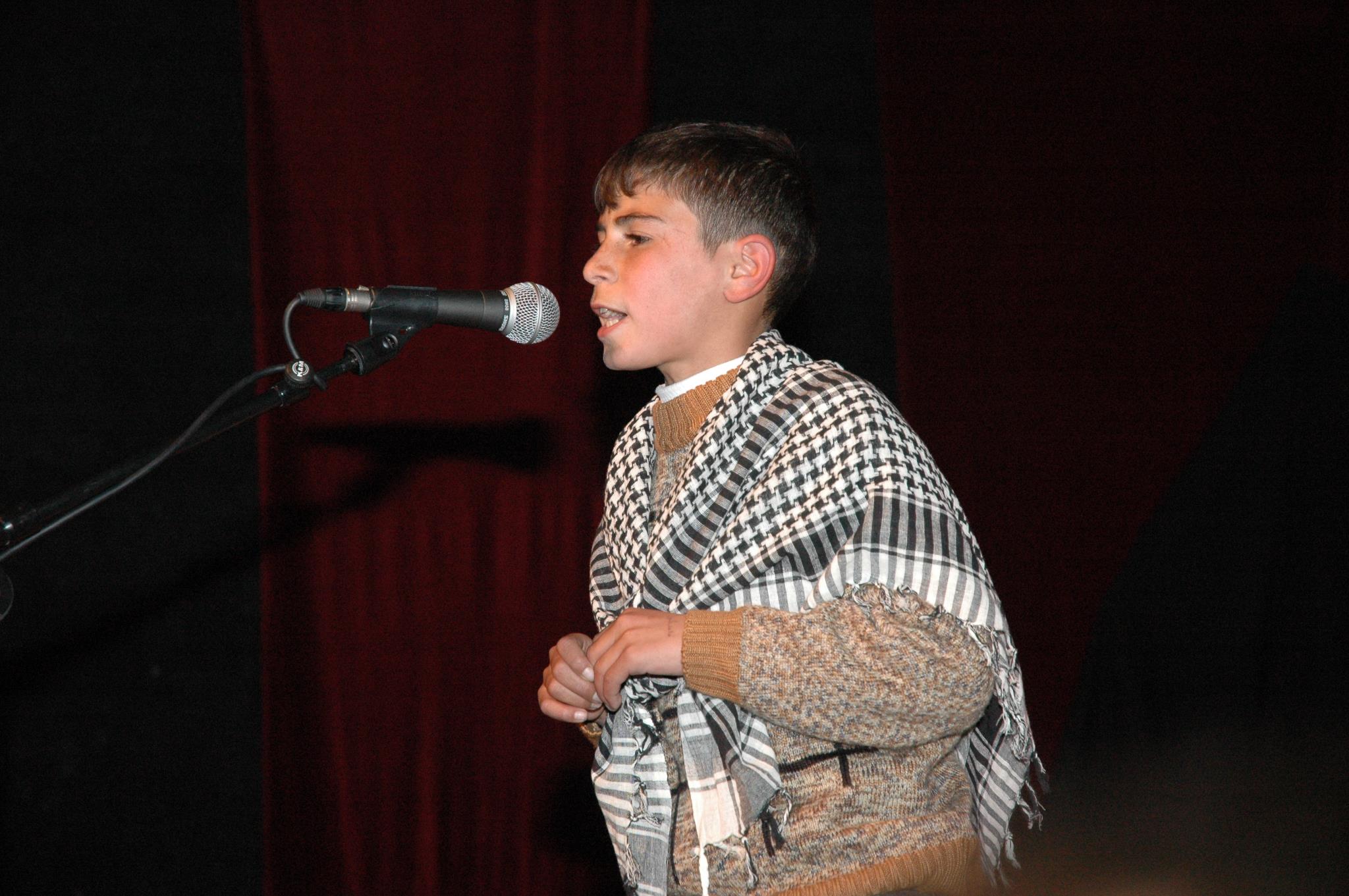 5:20 AM US Pacific time: The Israeli military trial of Oday Khatib, acclaimed Palestinian singer and instructor with the Al Kamandjati music school, has been postponed a third time, to April 17. Oday, 22 years old, has sung across Europe and the Arab world. He was arrested under questionable circumstances at Al Fawwar refugee camp near Hebron on March 19 and accused of throwing stones at Israeli soldiers. If convicted, he could be sentenced to ten years in an Israeli military prison.
5:20 AM US Pacific time: The Israeli military trial of Oday Khatib, acclaimed Palestinian singer and instructor with the Al Kamandjati music school, has been postponed a third time, to April 17. Oday, 22 years old, has sung across Europe and the Arab world. He was arrested under questionable circumstances at Al Fawwar refugee camp near Hebron on March 19 and accused of throwing stones at Israeli soldiers. If convicted, he could be sentenced to ten years in an Israeli military prison.
Check here later for updates, including interviews with Oday’s parents and reports of him singing in Ofer military prison. Photo: Oday Khatib at 14, singing in France. Courtesty Al Kamandjati.
The System In Place: Military trial of beloved singer Oday Khatib sheds light on Israel’s system of arrest and detention [UPDATE: trial postponed to Wednesday, April 17]

Oday Khatib, France 2012. He he stands accused of throwing stones and faces Israeli military trial on Monday. Photo by Khaled Jarrar
Imagine being confined to a small sliver of land, in plain view of a wider homeland that you cannot touch. Your house is in a refugee camp, surrounded by fine red-roofed homes built by and for strangers who seized your territory without warning or permission. The strangers, perched on hills that make it possible for them to spy into your home, are protected by one of the world’s most powerful armies, with its tanks, rockets, and helicopter gunships supplied by the top military power on earth. The soldiers tightly restrict your movements through your own territory. They subject your family to random searches at military posts along the road, where you’re forced to submit your documents, and sometimes to strip down to your underwear. At night, without warning, the army may enter your home and take your teen-aged children. In fact, they often do. Once you finally find out where they are, they may or may not face any charges. If they’re not charged, the military courts can hold them there indefinitely. If they are, the chances they will be found innocent are one in four hundred. Imagine that you lived in such place, in a land you had long dreamt would be your own sovereign country, but which is now cut up into tiny enclaves that keep you thus confined. What would you do? If you chose to resist, how would you do so? Oday Khatib fought back by singing.
Read more, at Aljazeera.com…
UPDATED (see italics): Ground-breaking Israeli journalist Amira Hass accused of incitement
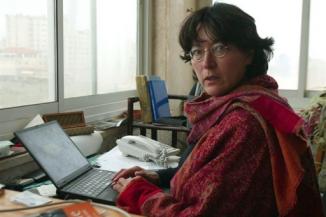
Amira Hass of Haaretz. The Israeli journalist lives in Ramallah. Photo reprinted from http://israelpalestine.blog.lemonde.fr/
NOTE, APRIL 10: SEE ITALICS FOR UPDATE. In the history of the Palestinian struggle for freedom, stones have played a central role. The stone was the symbol of the first Palestinian intifada (1987-1993), as children as young as eight years old rained their projectiles down on the occupying Israeli army. Soldiers often responded with live ammunition, killing more than 1,000 Palestinians, about 200 of them children. Youths with stones confronting soldiers with Galils and M-16s: suddenly Palestinian children took center stage as David against the Israeli Goliath. The image pricked the conscence of many Israelis, and citizens and governments around the world, and ultimately helped force Israeli leaders, including the late Prime Minister Yitzhak Rabin, to the negotiating table. (The Oslo agreement they forged with Palestinian negotiators proved to be disastrous; nevertheless, there was a palpable sense during the first intifada that the stone would lead to Palestinian liberation.)
Today the stone remains a part of Palestinian resistance to Israel’s occupation, which is more entrenched than ever. And while growing numbers of Palestinians advocate nonviolent resistance as the most promising path to a just peace, others strongly defend the right of Palestinians to throw stones as a legitimate act of political resistance against an illegal 47-year military occupation. One of them is an Israeli journalist. Read more, on Truthdig…
As singer Oday Khatib awaits Israeli military trial, testimonials pour in from around the world. (Update: trial postponed until April 8)
Testimonials from around the world are pouring in for Oday Khatib, the celebrated, star singer of Ramallah-based Al Kamandjati music school, who faces Israeli military trial on Monday, April 8. (The trial was earlier scheduled for April 3.) As I wrote recently, Oday was arrested March 19 for allegedly throwing stones at soldiers. As the 22-year old singer from Al Fawwar refugee camp awaits trial in Ofer Prison near Ramallah, his friends, fellow musicians and supporters of Al Kamandjati, founded by Palestinian musician Ramzi Aburedwan, are lighting up social media sites in support and musical witness.
“Oday and Ramzi came to London to perform with me and my group Fifth Quadrant last year,” writes Simon Hewitt Jones, a British violinist who has taught numerous workshops at Al Kamandjati. “His intensely moving singing had a profound effect on audiences in London. We also took him to Aldeburgh to work with young British musicians, who were astounded that someone so young – someone barely older than they were – could have such an powerful musical voice, and such inspirational artistry.”
Celebrated Palestinian singer arrested, accused of throwing stones; could face long prison term Serious doubts raised over accusations
An internationally-acclaimed Palestinian singer has been arrested by Israeli military forces and accused of throwing stones, a charge that could send him to prison for up to ten years or more.
Oday al-Khatib, 22 years old, born and raised in Al Fawwar refugee camp near Hebron, was arrested on March 19 by Israeli soldiers who were chasing stone-throwing youths in the area. He is a star singer of Al Kamandjati, the acclaimed Ramallah-based music school founded in 2005 by Ramzi Aburedwan, and has recorded and toured with various Arabic music ensembles in France, Belgium, Lebanon, Norway, Italy, Palestine, Dubai, Algeria, and Austria. (Ramzi and Al Kamandjati form the main focus of my new book, and Oday’s story will be featured prominently in it.)
Obama in the Holy Land: Occupation? What Occupation?
Riddle: What has been around for nearly 47 years; covers a territory the size of Connecticut; holds nearly three million people; is carved up by hundreds of blockades, barriers, “special security zones,” “closed military areas,” “killing zones,” and roads accessible only to a privileged minority; features an adult male population where an estimated two of every five have been arrested or imprisoned, many without ever being charged; and yet remains essentially invisible?
Remembering the First Intifada, 25 Years Later
Here’s an excerpt from Sandy Tolan’s upcoming book, Children of the Stones (working title), as published in Mondoweiss as part of its extensive series on the anniversary, Roots of Resistance.
On December 8, 1987, in the Gaza Strip, four Palestinians were killed when an Israeli truck or troop carrier veered into a long line of cars carrying day laborers home from Israel. This was the spark that lit a furious response, and spread quickly from Gaza across the West Bank and into the refugee camps. Boys and young men known as the shebab forged the front lines of what started as a spontaneous eruption against the killing of the four workers, but was fueled by a much deeper anger at decades of foreign rule. For more than 20 years, the occupying power had dictated nearly every aspect of public life. Israel ran the criminal and military courts, banned and approved textbooks, erected roadblocks and checkpoints, and levied special taxes so that, in effect, Palestinians were paying to be occupied. Permits were required to dig a well, plant a tree, repair a house, raise chickens, or travel to Jerusalem, the spiritual heart of the Palestinians for Muslim and Christian alike. National flags were banned, schools and universities shut down, protest leaders expelled to Jordan or Lebanon, and young men routinely rounded up and placed in “administrative detention” for weeks or months without charge. By 1987 the military had built a vast intelligence network, paying local spies, or issuing them coveted travel permits, in exchange for their eyes and ears in the camps.
Obama and Israel are walking away from two-state solution with Palestinians
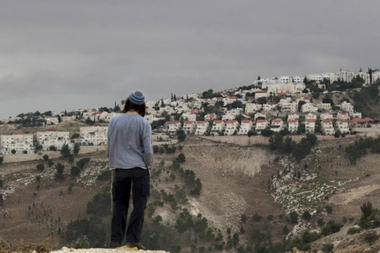
A Jewish settler looks at the West Bank settlement of Maale Adumim, from the E1 area on the outskirts of Jerusalem, Dec. 5. Op-ed contributor Sandy Tolan writes: 'US policy in the region continues to operate under the Beltway perception that “domestic political considerations” (chiefly driven by the Israeli lobby) must trump the national interest....despite the fact that within intelligence circles, Israel is increasingly seen as a strategic liability for the US.' Sebastian Scheiner/AP
The Obama administration’s refusal to support the successful Palestinian bid for symbolic “observer state” in the United Nations sends a strong signal that all will be business as usual during its second term. Worse, ever too mindful of the pro-Israel lobby in America, the United States has essentially endorsed a No State Solution between Israel and Palestine.
Official US policy has long been in support of a negotiated settlement that would produce two states, Israel and Palestine, existing side by side in peace. But during the “peace process” of the last 20 years, Israel’s actions have undermined that goal. Since the famous Rabin-Arafat handshake on the White House lawn in 1993, which marked the beginning of the Oslo process, the Israeli settler population in the West Bank has rocketed from 109,000 to more than 350,000. One of the largest settlements, Ariel (almost 20,000) has been absorbed into “greater Israel” by a separation wall that veers deep inside the West Bank; plans are in place to thus incorporate a second settlement, Maale Adumim(39,000). Read the full piece from the Christian Science Monitor…

